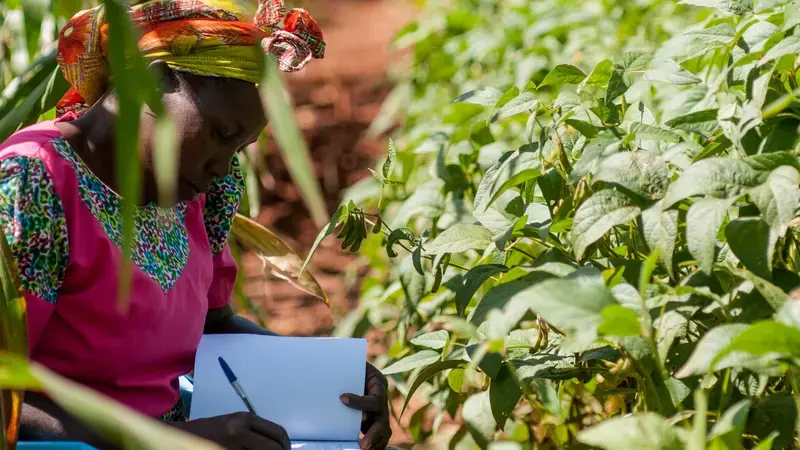Gender Equality - A Cornerstone of Sustainable Food Systems

On March 8th, CGIAR celebrates International Women's Day (IWD) through a new Gender Platform newsletter showcasing CGIAR's recent and critical gender research.
Sidelining women and girls when developing sustainable food system strategies means that vital sources of knowledge, ability, productivity, and opportunity will be left out.
Although climate change amplifies gender inequalities, the means to address these inequalities are less evident. In the MENA region, validating women in their non-traditional roles is an essential first step to strengthening resilience to climate change.
Gender inequalities across Egypt, Tunisia, Jordan, Ethiopia, and India mean that breaking out of poverty, owning assets, having a say in investment decisions, or being valued for their work is harder for women than for men. In these societies, women are rarely recognized for their roles as irrigators, rangeland users, farmers, or entrepreneurs.
The theme of this year's IWD is 'Gender equality today for a sustainable tomorrow,' setting the tone for the CGIAR Newsletter which highlights how women and girls in agriculture and food systems are contributing to a sustainable tomorrow.
This newsletter compiles scientific papers authored by Gender Scientists across CGIAR, media articles, blogs, and news stories that collectively highlight the achievements, impact, contribution, and lingering challenges facing women in food systems.
In it, you will read the story of Amsalech, a young Ethiopian farmer who turned her life around after enrolling in a sheep-fattening training program and establishing a group with other women from her village. She now leads this sheep fattening group and runs a successful business.
In Tunisia, ICARDA Gender Scientist Dr. Dina Najjar debunks the myth that rangeland cultivation and management are primarily male-oriented tasks. "Women dedicate a lot of time using rangelands to raise livestock but do not participate in decision-making on livestock and rangeland management," Dr. Najjar explains.
Please look around the newsletter to learn more about our research in gender equality and empowerment.
